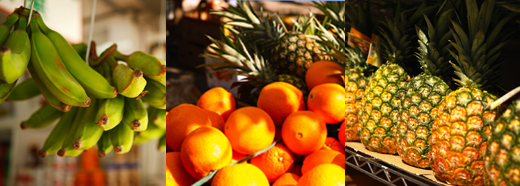| Diet remains an important and controversial consideration in preventing cancer. Generally, maintaining a healthy body weight and eating a diet rich in nutrients, including fruits, vegetables, legumes and whole (less processed) grains is recommended. Low fat meats, dairy, fish and oils, will help round out the diet. Yet, some choose to avoid animal proteins entirely. Vegetarians and vegans can get crucial proteins and fats through a variety of plants sources. The following link is a list of recommendations to reduce your risk of cancer. |
| Two important nutritional components that we strongly recommend integrating into your diet are fiber and antioxidants. |
FiberDiets high in fiber and limited in packaged, processed, and sugary foods will eliminate excess body weight and promote a healthy GI tract. Fiber is a component in all plant foods that our bodies cannot absorb or digest. It adds bulk and acts like a “scrub brush” in our digestive tract, cleaning out our colon. The fiber and the food source it is derived from (whole grains, vegetables, fruits, beans, lentils, nuts and seeds) help reduce the risk of several types of cancer. These plant-based diets are associated with a lower risk of many types of cancers – colorectal, stomach, mouth, pharynx, larynx, and esophageal. |
AntioxidantsPhytochemicals in these foods act as antioxidants in the body which may delay or prevent growth of cancerous cells. Choosing a variety of these foods, on a daily basis, is suggested. Although there may be some benefit to adding certain vitamin, mineral or nutritional supplements, a varied diet rich in antioxidant plant foods can provide many of the same benefits naturally. Small changes in your diet can have a big impact on your overall health. |


